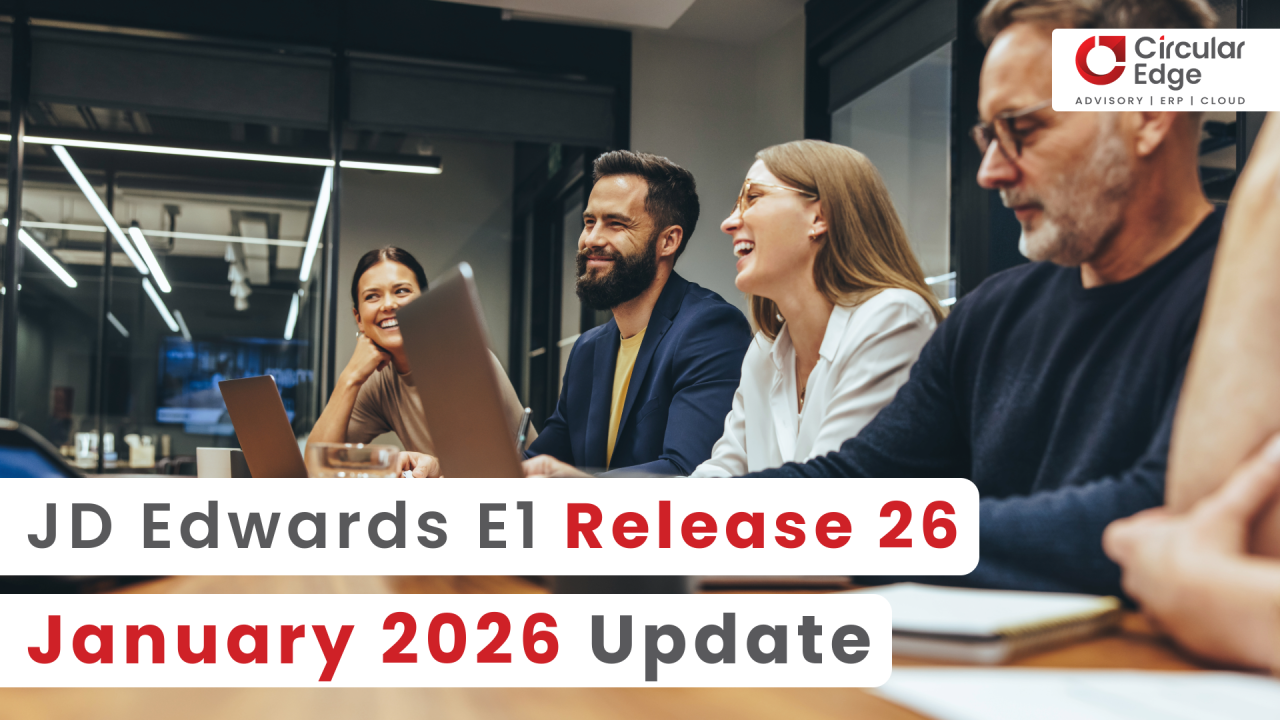What Is a JD Edwards Database Health Check?
A Database Health Check (DBHC) is a comprehensive evaluation of your JD Edwards database environment — including performance, configuration, security, and stability — to ensure it reliably supports your mission-critical processes. In ERP environments like JD Edwards, the database is the foundation of all applications, workflows, reporting, and integrations, making proactive health checks a strategic necessity.
At its core, a DBHC assesses:
- Database performance metrics
- Architecture and configuration settings
- Security posture and user access controls
- Backup, recovery readiness, and disaster resilience
- Growth forecasts and capacity management
- Risk and compliance gaps
Why Every JD Edwards Organization Should Prioritize a Database Health Check
A well-executed JD Edwards Database Health Check delivers quantifiable business impact:
Boost System Performance
Identifying tuning opportunities — from query optimization to resource allocation — ensures faster processing, improved throughput, and a smoother user experience.
Mitigate Outage Risk
By uncovering latent misconfigurations, bottlenecks, or capacity constraints before they escalate, you dramatically reduce the probability of costly downtime.
Strengthen Security & Compliance
Health checks validate whether critical security patches are applied, backup strategies are working, and access controls follow best practices, safeguarding sensitive data across your ERP landscape.
Drive Operational Confidence
Business stakeholders and IT leaders gain actionable insights into database health, enabling smarter planning for upgrades, migrations, and digital transformation initiatives.
What a JD Edwards Database Health Check Covers
An effective health check analyzes both the database engine and the ERP-specific configuration around it. Key components typically include:
1. Performance Metrics & Tuning
- Query performance and execution plans
- Index efficiency and fragmentation
- Memory and CPU utilization patterns
- I/O throughput and bottlenecks
2. Configuration & Best Practices
- Database instance parameters
- Backup/restore strategy and recovery point objectives (RPO)
- Patch level validation
- Storage allocation and growth readiness
3. Security & Access Controls
- User privileges and roles
- Password policies and enforcement
- Review of system and audit logs
4. Strategic Insights & Reporting
Each health check should produce a clear, executive-ready report that highlights issues, prioritizes risks, and recommends practical next steps.
When Should You Run a Health Check?
Best practice recommends performing a Database Health Check:
- Quarterly, as part of routine ops
- After major upgrades (e.g., JDE 9.2 releases)
- Before/after migrations or infrastructure changes
- When performance or stability issues arise
- Ahead of key business periods or audits
This cadence ensures you catch emerging issues early and maintain confidence in system performance.
Who Should Perform Your JD Edwards Database Health Check?
Top Database Health Check Best Practices
To maximize ROI from health checks, follow these proven principles:
✔ Standardize Monitoring
Implement ongoing performance monitoring tools that extend beyond periodic checks — keeping an always-on pulse on key KPIs and alerting on anomalies early.
✔ Leverage Automation
Automate recurring assessments where possible to reduce manual effort and increase consistency across environments.
✔ Align With Business Goals
Don’t treat health checks as purely technical audits. Tie findings back to business impact — uptime, reporting accuracy, customer experience, and operational costs.
✔ Plan Based on Insights
Use health check results to prioritize tuning, security hardening, capacity planning, or architectural improvements.
Case: Transforming Stability into Strategic Advantage
Organizations that proactively adopt database health checks typically see:
- Fewer unplanned outages
- Reduced incident response times
- Clearer upgrade and migration roadmaps
- Greater confidence from executive and IT leadership
These outcomes illustrate that database health isn’t just IT hygiene — it’s a competitive advantage in ERP reliability.
Get Expert Support for Your JD Edwards Database
If you’re facing persistent performance challenges, uncertain about your backup strategies, or ready to elevate ERP stability, expert help can make all the difference.
Circular Edge can assist with tailored JD Edwards database health checks that deliver actionable insights and prioritized improvement plans — empowering your team to operate with confidence.
Contact us today to schedule your database health check and secure your ERP foundation.













